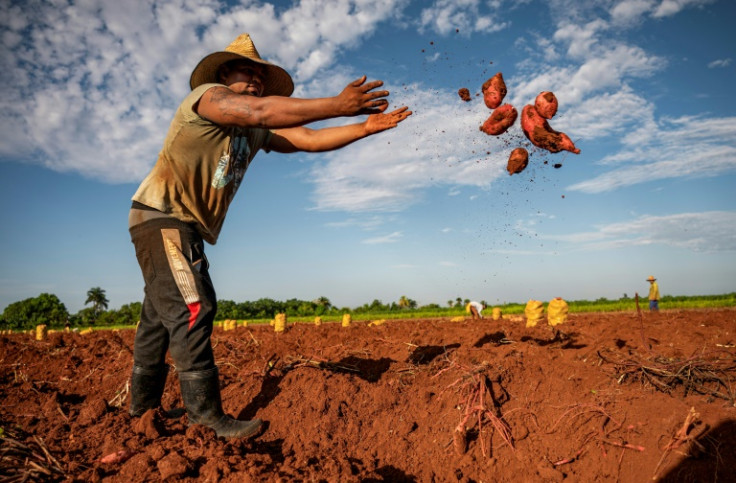
Cuban farmers are facing severe challenges after Hurricane Rafael, a Category 3 storm, devastated crops in Artemisa province two weeks ago. The storm caused widespread damage, with farms losing key crops like bananas, beans, yucca, mango, and avocado, along with critical infrastructure such as fences and power lines.
Leonardo Abreu, a farmer in Caimito, reported extensive losses, including the destruction of his crops and the breakdown of his generator. "Everything has been wiped out," he said, adding that without electricity or water for irrigation, his ability to restart his operations is severely limited. "We're starting again from scratch," said the 47-year-old farmer from Caimito, visibly overwhelmed by the loss, as reported by Reuters. "Everything has been wiped out."
This situation compounds existing struggles for Cuba's agricultural sector, which was already facing difficulties due to the country's ongoing economic crisis. Farmers had already been dealing with rising food prices, reduced government subsidies, and growing shortages across the island.
Abreu's loss will affect more than just his family. Nearly 2 million people in Havana rely on farms like his in neighboring Artemisa province for their food. Even before the hurricane, Cuba was facing skyrocketing food prices, shrinking government subsidies, and growing shortages, all part of the island's worst economic crisis in decades.
The storm highlights Cuba's vulnerability, particularly in agriculture, which was already struggling. Abreu, who inherited his land from his grandfather, fears the situation will worsen in the coming months, with basic food items becoming increasingly scarce. "If you think things are bad now, wait a month," he said. "We'll be eating the skins off the bananas."
Efforts to salvage crops before and immediately after the storm, picking unripe crops to bring to market, helped mitigate some losses. But the real challenge lies in recovery. Jorge Luis Gonzalez, a 60-year-old rancher, said the upcoming winter planting season would be delayed due to a lack of water and electricity, which is necessary to operate irrigation pumps.
Cuba's government has made some progress in restoring power, with 62% of Artemisa province reportedly receiving electricity as of Tuesday, according to the outlet. However, the broader challenges facing the agricultural industry are deep-rooted. Agriculture Minister Ydael Perez Brito reported Cuban farmers are operating with just 10% of the fuel they need, and only 7% of the country's farmland is irrigated.
Additionally, the country has struggled to acquire enough fertilizer and animal feed in recent years due to trade and economic sanctions. A record number of migrants leaving the country, along with low wages, has further depleted the workforce in rural areas.
The decline in agricultural production is evident in official statistics. Since 2020, the number of hens, including egg layers, has dropped by 62%, and the number of sows has fallen by 73%. As a result, eggs and pork, once Cuban staples, are now both scarce and expensive.
In Havana, residents are feeling the pinch. Alejandro Castillo, a retired resident, expressed concern about rising food prices. "I come to this market regularly, and prices just keep going up," he said. "There are products now, but what will be left for the end of the year?"
© 2024 Latin Times. All rights reserved. Do not reproduce without permission.











